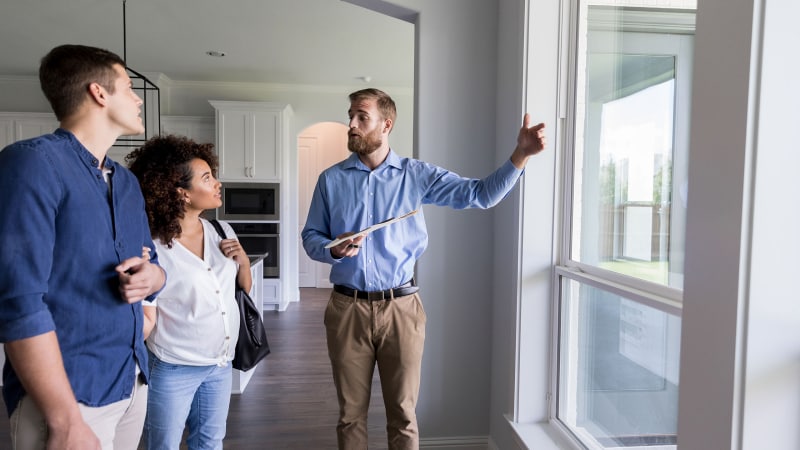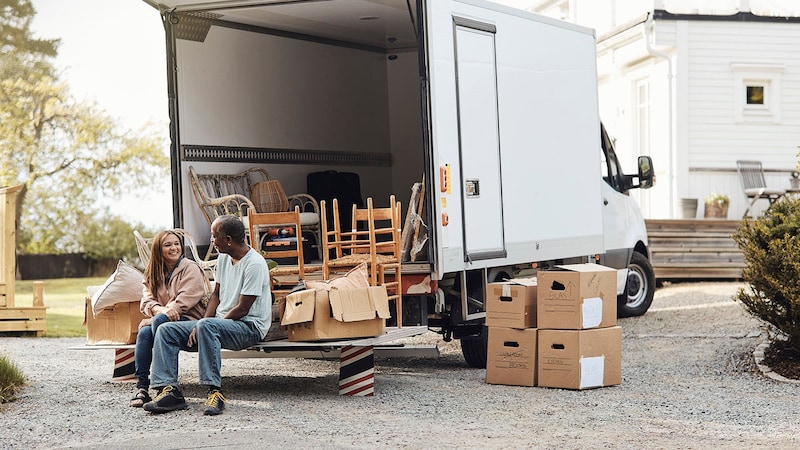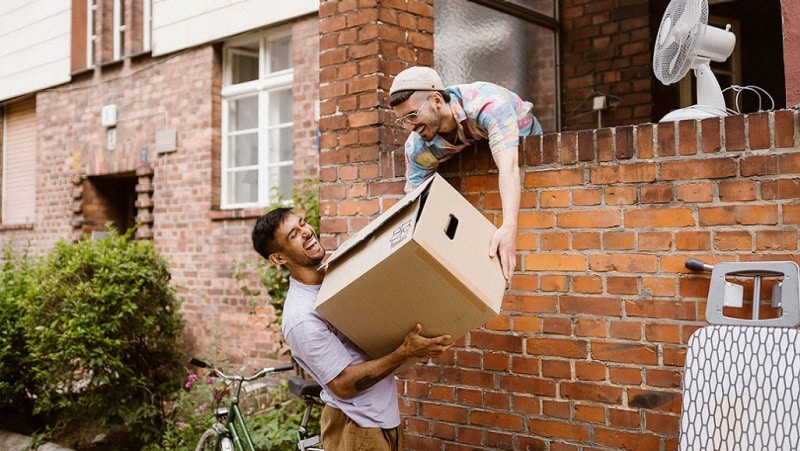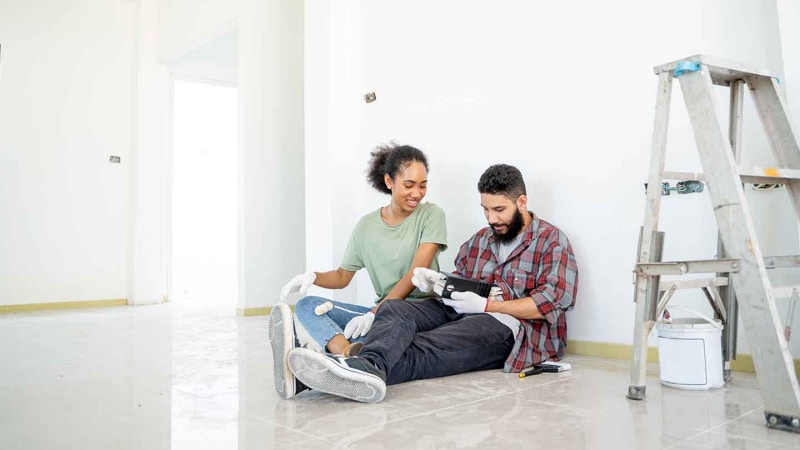Benefits of buying a house vs. renting an apartment

At one time, homeownership was a goal for nearly everyone. Today, there are many housing options that don't require taking out a mortgage. You may find that buying a house vs renting an apartment is the best choice for you, or you may decide that renting is the way to go.
When deciding between the two, you should consider which type of housing is best suited to your personal goals and lifestyle. If you currently rent, you need to decide if you’re ready for the financial commitment of buying a house. Both renting an apartment and buying a home have advantages and disadvantages to consider.
Five reasons why you may want to buy a house vs. renting an apartment
For both financial and personal reasons, you may discover that owning your own house outweighs the expenses. Here are five reasons why buying your own home might make sense:
- Build equity. As you make payments on your loan, and/or if the value of your home goes up, you achieve equity. The greater the difference between what you owe on your mortgage and what your house is worth, the more equity you have. You can borrow against this equity or even refinance your mortgage and get some cash out. This financial cushion is appealing to many people and may be a lower risk compared to many types of investments.
- Potentially reduce your tax burden. When you have a mortgage, you may be able to deduct the interest you pay from your income taxes. This often means you may also deduct points and some closing costs related to prepayment of interest. And you may be able to deduct some of your property taxes and take exemptions for using part of your home as a workplace. Consult your tax advisor about your personal situation.
- Location. Apartments may not be available in all areas you are interested in. When you buy property, you can choose from more varied locations, including rural homes with more land.
- Do what you like. When you rent, you're often limited in what improvements you can make. You usually can't choose your appliances or wall color. When you buy, you have more freedom to rework your space to meet your tastes and needs. Additionally, you may not have to worry about paying for minor damages that occurred if you don’t want to fix them.
- Privacy. You typically have more privacy when you own a home than when you rent.
Five reasons why you may want to stay in an apartment
There are many reasons to remain a renter, even though you are not investing in property. These include:
- Ability to easily move or relocate. While you take on a lease when you move into an apartment, many leases are for a year or less, and some may allow for opting out after some period of time or offer a month to month option. At some properties, you just have to give a 30-day notice if you plan to move out. This gives you a lot of flexibility, so you can take a job in another area, try out another community or simply choose a space with more amenities.
- Reduced credit requirements. You usually need decent credit to rent, but it may not be as stringent or complex as what’s needed to get a home mortgage.
- No maintenance worries. If the toilet starts to leak or the lights begin to flicker, you can generally call your landlord and have them deal with the situation. It may inconvenience you, but you won't have to pay to fix these and other similar issues that can crop up.
- Utilities included in your rent. Many rental properties incorporate your water, sewer and electricity costs into your rent. Some apartments also include cable television and internet access.
- Proximity to services. Larger apartment complexes are more likely to be located near cities, and may be within walking distance of stores, restaurants and other attractions. You may also be able to access public buses or subways to get to your job or school, which could save you money in transportation costs.
Costs of homeownership vs. costs of renting
The money you’ll spend buying a house vs renting an apartment can be a major factor in helping you decide which option is right for you. It's important to analyze what you'll spend to buy vs rent before you make your decision. Here are some costs to consider.
Costs in buying a house
- Down payment. You'll have to save some money to put down on a house purchase. This can be as little as 3% of the total purchase price, but if you put at least 20% down on most mortgages, you won't have to pay for mortgage insurance.
- Mortgage payment. Each month, you'll make a payment toward your mortgage balance. If you have a fixed-rate mortgage, your payment will stay relatively stable for the life of the loan which can help you make a long-term budget plan.
- Closing costs. When you buy a home, you'll have several expenses related to getting a mortgage and taking ownership. This may include an appraisal of the property as well as loan origination and title fees, legal fees and more. These closing costs are usually about 3 to 5% of the total purchase price.
- Maintenance and repairs. As a homeowner, you'll be responsible for all the costs of repairs should something go wrong. You'll also have regular maintenance costs, such as for weatherizing, painting, landscaping, etc.
- Utilities. Many apartments roll the costs of some or all utilities into your rent, but homeowners must separately pay for water, sewer, electric, gas, garbage and recycling and in some cases, Homeowner Association Fees.
- Property taxes. Every year, you'll be responsible for paying taxes that support services for the community you live in. The amount is based on the assessed value of your home.
- Insurance. You need to have insurance that covers your home and belongings against loss and damage from things like weather, fire and theft.
Costs in renting an apartment
- Monthly rent. Rent can increase, sometimes on an annual basis. You may pay more if you have specific amenities, like access to an on-site gym, or if you live with a pet.
- Security deposit. Many rentals require the equivalent of one or more months' rent to cover any damages.
- Insurance. You're usually not required to have renter’s insurance, but a policy will cover your belongings if the apartment is damaged.
- Utilities. These may or may not be covered in your rent, but you could have to pay for at least your cable and internet should you wish to have these.
While the upfront costs of buying a home may be higher, the monthly payments may be similar, and you get additional benefits of building equity and having the freedom to make improvements to your property.
Deciding whether to buy or rent
Answering a few simple questions can help you decide whether you're better off buying or renting for the immediate future.
- Can I afford it? Compare the total costs of buying vs. renting to see which works better for you. Having enough money for a down payment could be an issue for potential buyers.
- How long will I be living there? If you won't be in a house for at least three years, you may not be able to make up the costs of closing the loan. You may have to live in a house even longer to make up the difference between the cost of owning and renting.
- How much will a house appreciate? No one can predict the future, but you can make reasonable guesses about whether you're buying a home in a market where values will continue to grow.
How to get started moving from an apartment to buying a home
If you've decided that homeownership is right for you, you can start by saving for a down payment. Your goal should be 20% of the purchase price, though it may make financial sense for you to buy before you have that amount.
Look for a real estate agent who can help you find the right property. The right agent can work with your timeline while keeping an eye out for homes that meet your requirements.
Get pre-qualified for a mortgage to help you know how much you can spend on a home and give you the reassurance that you can afford to buy. You can speak to a Home Lending Advisor for more help understanding the process of buying a house.



